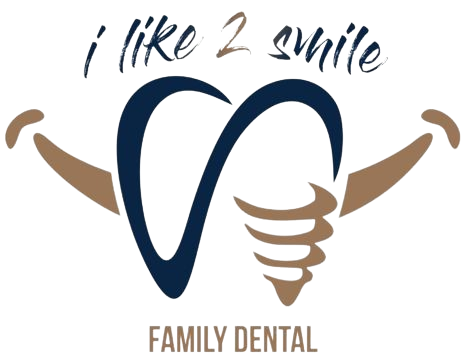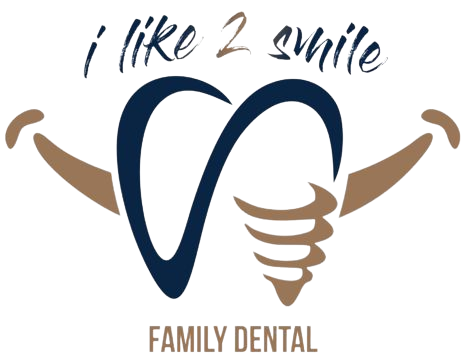Frequently Asked Questions
General
We offer a comprehensive range of dental services, including preventive care, general dentistry, cosmetic dentistry, and restorative treatments. Our goal is to help you achieve and maintain optimal oral health.
We recommend scheduling a dental check-up and cleaning every six months. However, the frequency may vary based on individual oral health needs. Your dentist will advise you on the appropriate schedule during your visit.
Yes, we accept most dental insurance plans. We also offer various payment options, including cash, credit cards, and financing plans. Our team is happy to assist you in understanding and maximizing your insurance benefits.
If you experience a dental emergency, such as a severe toothache or a knocked-out tooth, please contact our office immediately. We prioritize emergency cases and will do our best to provide prompt care.
Teeth whitening is a safe and effective cosmetic procedure when performed by a dental professional. The duration of results varies, but with proper oral care and lifestyle choices, the effects can last for several months to a few years.
Maintaining good oral hygiene involves regular brushing (at least twice a day), flossing, and using an antiseptic mouthwash. Additionally, a balanced diet and limiting sugary snacks contribute to overall oral health.
A dental filling is used to repair a small portion of a damaged tooth, while a dental crown covers the entire tooth, providing strength and protection. Your dentist will recommend the most suitable option based on the extent of damage.
Yes, we specialize in pediatric dentistry to ensure that children receive the best possible care. Our team is experienced in creating a positive and comfortable environment for young patients.
Scheduling an appointment is easy! You can call our office during business hours or use our online appointment scheduling system on our website. We look forward to helping you achieve a healthy and beautiful smile.
Dental Health
Good oral health is characterized by pink gums, fresh breath, and teeth free from cavities or discoloration. Regular dental check-ups are essential to ensure overall oral well-being.
It’s recommended to replace your toothbrush every three to four months or sooner if the bristles become frayed. A worn toothbrush is less effective at cleaning your teeth and gums.
Yes, fluoride is crucial for preventing tooth decay. It strengthens tooth enamel, making it more resistant to acid attacks. Many toothpaste and mouthwash products contain fluoride to promote oral health.
Brush your teeth at least twice a day using a soft-bristled toothbrush and fluoride toothpaste. Floss daily to clean between teeth and along the gumline. Technique is essential, so ask your dentist or dental hygienist for a demonstration.
Yes, there is a connection between oral health and overall health. Poor oral health has been linked to conditions such as heart disease, diabetes, and respiratory issues. Taking care of your teeth and gums is an important part of maintaining overall well-being.
Practicing good oral hygiene, including regular brushing, flossing, and using an antiseptic mouthwash, is key to preventing cavities and gum disease. Additionally, maintaining a healthy diet low in sugary foods and regular dental check-ups are important preventive measures.
Yes, alternatives such as clear aligners are available for teeth straightening. These options offer a more discreet and comfortable way to achieve a straighter smile. Consult with your dentist to determine the best option for your specific needs.
Tooth sensitivity can be caused by various factors, including enamel erosion or exposed tooth roots. Using a toothpaste designed for sensitive teeth, avoiding acidic foods, and consulting your dentist for personalized advice can help alleviate sensitivity.
Pregnant women should maintain good oral hygiene and continue regular dental check-ups. Hormonal changes during pregnancy can affect oral health, so it’s essential to address any concerns with your dentist. Inform your dentist about your pregnancy and any medications you may be taking.
Persistent bad breath may be a sign of underlying dental issues. Practicing good oral hygiene, staying hydrated, and avoiding tobacco can help alleviate bad breath. If the problem persists, consult with your dentist to identify and address the cause.
Tooth Extraction
Post-Operative Instructions
You may experience minor bleeding and “oozing” for 1-2 days, with pain and discomfort improving gradually in 1-5 days. Swelling may occur for a week, peaking on the 2nd and 3rd days after surgery. Tightness and stiffness to the jaw and joint areas are common.
After the first 24 hours, rinse gently with warm salt water after every meal for 1-2 weeks. Brush gently, avoiding the extraction sites for 1-2 weeks. If provided with gauze, bite on it for 30 minutes. If bleeding persists, bite on fresh gauze until slight oozing and clotting occur. Avoid smoking, spitting, drinking through a straw, or carbonated beverages for 3 days. No rinsing/spitting for the first 24 hours. No hot foods/drinks for the first 24 hours.
Restrict heavy, strenuous activities like running, jogging, gymming, or swimming for a couple of days. If you received IV sedation, refrain from driving for 24 hours or while taking narcotics.
On the first day, stick to soft, cool foods such as Jello, pudding, yogurt, applesauce, mashed potatoes, cottage cheese, and ice cream. Room temperature soup is acceptable. Around day 3-4, you may resume a regular diet, but return to a soft diet if your jaw starts to ache.
You may be given prescription pain medication or directed to use over-the-counter pain medication. Take as directed to manage discomfort and painful swelling. Follow any additional recommendations from your dental provider.
You may receive a prescription for antibiotics; take as directed. Continue taking medications prescribed by your primary care physician. Pain after oral surgery is best managed with scheduled doses of NSAIDs like Ibuprofen and Acetaminophen. Short-term opioids may be prescribed; use them only for severe pain despite scheduled NSAIDs and acetaminophen.
You will be given an appointment for a post-operative check about 1-2 weeks after surgery. Bring any questions you have to this appointment. If you cannot keep the appointment, call to reschedule.
Call your doctor if you experience increased swelling or bruising, severe or increased pain not relieved by medication, side effects to medications, or an oral temperature over 100.5 degrees. If you have questions, call (604)-757-2700 Monday – Saturday, 9:00 a.m. – 6:00 p.m.
Post Operative Instructions
after Perio Flap Surgery
Yes, you can continue to brush and floss the untreated teeth as usual. However, avoid vigorous rinsing or spitting within the first 24 hours. Starting the next day, rinse with warm salt water (one-half teaspoon salt to one cup water).
Some discomfort is normal, especially in the first six to eight hours after surgery. Many patients find relief with Ibuprofen (Advil) 800mg every six hours. Follow any prescribed pain relievers, taking them with food as directed.
Swelling is expected and typically peaks in the first day or two. Apply ice to the side of the face for 15 minutes on and 15 minutes off as often as possible during the first 24 hours. Frozen vegetable bags wrapped in dishtowels can be used for this purpose.
Keep your head elevated at all times for the first five to seven days post-surgery. This helps reduce swelling and pain.
Slight bleeding/oozing for a day or two is normal. If heavy bleeding occurs, apply firm pressure with gauze or a wet/dry tea bag for 30 minutes. Avoid frequent pack changes, rinsing, spitting, or physical exertion until bleeding stops.
You may eat or drink what you feel up to once the local anesthetic has worn off. Stick to a soft diet to prevent dislodgment of the dressing. Do not chew in the surgical areas or where the dressing is placed.
Ice creams, frozen yogurt, smoothies, banana/mango shakes, and lassi are all suitable. Avoid very hot foods or liquids for the first 24 hours. Drink plenty of fluids but do not use a straw or create a sucking action in your mouth.
No, smoking will significantly delay the healing process. It is strongly advised not to smoke during the recovery period.
Keep your lips moist with ChapStick or Vaseline to prevent chapping.
If prescribed antibiotics and taking oral contraceptives, use an alternate method of birth control for the remainder of the cycle.
If any unusual symptoms occur or if you have questions about your progress, please don’t hesitate to call our office at 604-757-2700. We’re here to help!




